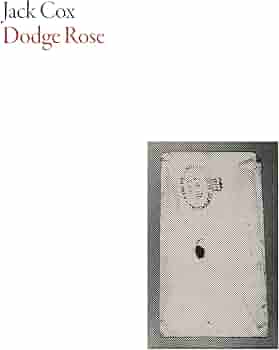But great masses of accumulation. From where. Impossible to tell. The venereal flow of international bric a brac. Open sesame. Here we go again. Deliacious ecstasy oh it doesn't matter and refuse of an interminable bargain that sends you senselessly out of your depth even as it generates the very jetsam that keeps you floating on tides of junk dapped by dirty Kleenex drifting albums fold out star charts cigarette tins calendars empty perfume bottles bits of lead type terracotta picture frames torn up ferry time tables cameo heads playing cards needlework monogrammed gloves and combs and suitcases strings of beads and heaps and other. The spectacles she used to buy from the chemist, themselves a wonderful piece of work in the world's catalogue. Infinite seed. A list is nothing, details lost to view in their own ascendance save a glint from between the dark stacks of a microlith flake shard of creamware a pencil or a choker or a broken light bulb pharate still in the striped box a jade brooch at most a briefer stretch of turpiloquium.
Eliza comes to Sydney because her aunt Dodge Rose--an aunt she didn't even know she had--has died. She wants to live in the apartment that Dodge has left behind, alongside Maxine, who is Dodge's daughter or something like it. Maxine seems to have had led a cloistered life with Dodge, hoarding trash and helping with her incontinence, and she is entranced by Eliza, perhaps even enamored by her, which is a little weird, when you think about it. Together, they scheme how about how to secure Dodge's apartment and to live off what she has left behind, but they are baffled by the bureaucratic intransigence of Australian law, of the bank, of the appraisers and auctioneers.
Then, halfway through, Eliza and Maxine's storyline ends and the novel switches to the point of view of young Dodge--how young I could never quite figure out--living with her apartment with her parents many years before. These chapters are largely dialogue, overheard conversations between Dodge's parents and their friends. We see from Dodge's perspective the arrival into the household of another young person under circumstances that were never quite clear to me, a person referred to as "X" who I presume becomes Eliza's mother. In this way the novel becomes about two different female-female relationships: transgressive relationships that exist in opposition to the menacing and masculine worlds of commerce and law, and which refuse to accommodate labels, like "sisters" or "lovers" that might make them legible to us. It is about inheritance, also: what does Dodge possess that Maxine can inherit? Is her relationship with Eliza a kind of inheritance, unwittingly modeled on Dodge and X? When the furniture is auctioned off, will Dodge, in a sense, disappear?
Dodge Rose is the kind of novel you might label, with or without sneering, experimental, or perhaps avant-garde. Dodge writes without capitalization; both Dodge and Maxine are likely to pass from lucidity into incoherence and return again. The novel has a Joyce-like obsession with lists. There are long sections of unbroken jargon: first, delivered by a lawyer who provides an elaborate history of Australian property law instead of telling Maxine and Eliza how to recover the deed to the apartment; then again by a banker who does the same with, you know, bank stuff. These sections are quite literally unreadable. They do something quite recognizable, which is to replicate the mysterious impenetrability of the institutional forces that control so much of our lives. But do they need to do that for fifteen pages?
A lot of Dodge Rose just isn't open to comprehension. It ends with two pages of randomly typed letters meant to represent, I think, a kind of ecstasy to which the young Dodge has ascended. Sometimes the novel takes on the quality of Dadaist poetry, in which the words themselves become a kind of static image to be taken in on the page, but sometimes it seems dismissive and self-indulgent. It makes me feel like a philistine to say stuff like that, but it's true. Worse, its excesses don't seem challenging because they don't seem fresh: it's literally the same old nonsense. Dodge Rose can become stubbornly inert, without even the sense that there's something worth getting to behind the locked gate. Which is too bad, because when the novel is more or less legible, as with Maxine and Eliza's adventures trying to dispossess themselves, it has a terrific comic quality. I wish more of it had been like that.


No comments:
Post a Comment